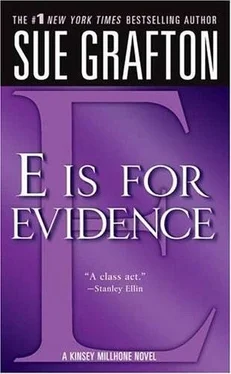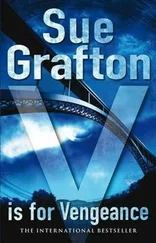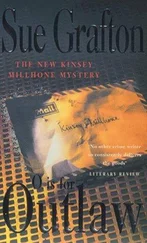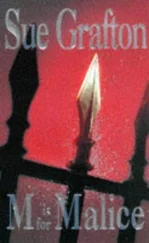"I'm sure she does. It's probably in a box and goes boom when you pick it up."
"I asked her about that. She swears she didn't have anything to do with Olive's death."
"And you believed her?"
"I guess I did in a way."
"Hey, you were the one who told me about the threat. She scared the life out of you and here she is again. If you won't call Lieutenant Dolan, I will."
I thought he would argue, but he sighed once. "All right. I know it's the only thing that makes any sense. I've just been in such a fog."
"Where's she staying?"
"She didn't say. She wants to meet at the bird refuge at six. Would you be willing to come? She asked for you by name."
"Why me?"
"I don't know. She said you flew to Texas to talk to her. I can't believe you didn't mention that when the subject came up."
"Sorry. I guess I should have. That was early in the week. I was trying to get a line on Hugh Case, to see how his death fits in."
"And?"
"I'm not sure yet. I'd be very surprised if it didn't connect. I just can't figure out how."
Terry gave me a skeptical look. "It's never been proven he was murdered, has it?"
"Well, that's true," I said. "It just seems highly unlikely that the lab work would disappear unless somebody meant to conceal the evidence. Maybe it's the same person with a different motive this time."
"What makes you say that? Carbon-monoxide poison-ing is about as far away from bombs as you can get. Wouldn't the guy use the same method if it worked so well the first time?"
I shrugged. "I don't know. If it were me, I'd do what-ever was expedient. The point is, this is not something we should fool around with on our own."
I saw Terry's gaze focus on something behind me. I turned to see Bass. He looked old. Everybody had aged in the wake of Olive's death, but on Bass the lines of weari-ness were the least flattering-something puffy about the eyes, something pouty about the mouth. He had one of those boyish faces that didn't lend itself to deep emotion. On him, sorrow looked like a form of petulance. "I'm tak-ing Mother home," he said.
"I'll be right there," Terry said. Bass moved away and Terry turned back to me. "Do you want to call Lieutenant Dolan or should I?"
"I'll do it," I said. "If there's any problem, I'll let you know. Otherwise, I'll meet you down at the bird refuge at six."
I was home by 3:35, but it took me almost an hour to track down the lieutenant, who was certainly interested in having a chat with Lyda Case. He said he'd be there at 5:00 in an unmarked car, on the off-chance that she was feeling truly skittish about contact with the police. I changed into jeans and a sweatshirt and pulled on my tennis shoes. I was tired, and the residual pain from my injuries was like a slow leak from a tire, depleting. Over the course of the day, I could feel myself go flat. In some ways I shared Terry's sentiments. It was hard to believe Lyda was re-sponsible for the package bomb, let alone her husband's death two years before. In spite of her accusations and the veiled threat to Terry, she didn't seem like the homicidal type, for whatever that's worth. I've been surprised by killers again and again, and I try not to generalize, but there it was. Maybe she was just what she claimed to be… someone with information that might be of help.
By the time I reached the meeting place, the sun was almost down. The bird refuge is a landscaped preserve near the beach, established to protect geese, swans, and other fowl. The forty-three-acre property abuts the zoo and consists of an irregular-shaped freshwater lagoon, sur-rounded by a wide lane of clipped grass through which a bike trail runs. There's a small parking lot at one end where parents bring little children with their plastic bags of old popcorn and stale bread. Male pigeons puff and posture in jerky pursuit of their inattentive female coun-terparts who manage to strut along just one step away from conception.
I pulled into the lot and parked. I got out of my car. Sea gulls swirled and settled in an oddly choreographed dance of their own. Geese honked along the shore in search of crumbs while the ducks paddled through the still waters, sending out ripples around them. The sky was a deepening gray, the ruffled silver surface of the lagoon reflecting the rising wind.
I was glad when Lieutenant Dolan's car pulled in be-side mine. We chatted idly until Terry appeared, and then the three of us waited. Lyda Case never showed. At 8:15, we finally gave it up. Terry took Dolan's number and said he'd be in touch if he heard from her. It was a bit of a letdown, as all three of us had hoped for a break in the case. Terry seemed grateful for the activity and I had to guess that it was going to be hard for him to spend his first night alone. He'd been in the hospital Friday night and with his mother-in-law on Saturday while the bomb squad finished their crime-scene investigation and a work crew came in to board up the front wall of the house.
My own sense of melancholy had returned in full force. Funerals and the new year are a bad mix. The pain-killers I'd been taking dulled my mental processes and left me feeling somewhat disconnected from reality. I needed companionship. I wanted lights and noise and a good din-ner somewhere with a decent glass of wine and talk of anything except death. I fancied myself an independent soul, but I could see how easily my attachments could form.
I drove home hoping Daniel would appear again. With him, you never knew. The day he walked out of the marriage eight years before, he hadn't even left a note. He didn't like to deal with anger or recrimination. He said it bummed him out to be around people who were sad, de-pressed, or upset. His strategy was to let other people cope with unpleasantness. I'd seen him do it with his family, with old friends, with gigs that no longer interested him. One day he wasn't there, and you might not see him for two years. By then, you couldn't even remember why you'd been so pissed off.
Sometimes, as in my case, there'd be some residual rage, which Daniel usually found puzzling. Strong emo-tion is hard to sustain in the face of bafflement. You run out of things to say. Most of the time, in the old days, he was stoned anyway, so confronting him was about as produc-tive as trying to discipline a cat for spraying on the drapes. He didn't "get it." Fury didn't make any sense to him. He couldn't see the connection between his behavior and the wrath that was generated as a consequence. What the man did really well was play. He was a free spirit, whimsical, inventive, tireless, sweet. Jazz piano, sex, travel, parties, he was wonderful at those… until he got bored, of course, or until reality surfaced, and then he was gone. I had never been taught how to play, so I learned a lot from him. I'm just not sure it was anything I really needed to know.
I found a parking spot six doors away. Daniel's car was parked in front of my place. He was leaning against the fender. There was a paper bag with twine handles near his feet, a baguette of French bread sticking out of it like a baseball bat.
"I thought you might be gone by today," I said.
"I talked to my friend. It looks like I'll be here a couple days more."
"You find a place to stay?"
"I hope so. There's a little motel here in the neighbor-hood that will have a room free later. Some folks are check-ing out."
"That's nice. You can reclaim your stuff."
"I'll do that as soon as I know for sure."
"What's that?" I said, pointing at the baguette.
He looked down at the sack, his gaze following mine. "Picnic," he said. "I thought I'd play the piano some, too."
"How long have you been here?"
"Since six," he said. "You feel all right? You look beat."
"I am. Come on in. I hope you have wine. I could use some."
He pushed away from the car, toting the bag as he followed me through the gate. We ended up at Henry's, sitting on the floor in his living room. Daniel had bought twenty-five votive candles and he arranged those around the room until I felt like I was sitting in the middle of a birthday cake. We had wine, pate, cheeses, French bread, cold salads, fresh raspberries, and sugar cookies the size of Frisbees. I stretched out afterward in a food-induced rev-erie while Daniel played the piano. Daniel didn't play music so much as he discovered it, calling up melodies, pursuing them across the keys, embroidering, embel-lishing. His background was in classical piano, so he warmed up with Chopin, Liszt, the intricacies of Bach, drifting over into improvisation without effort.
Читать дальше












